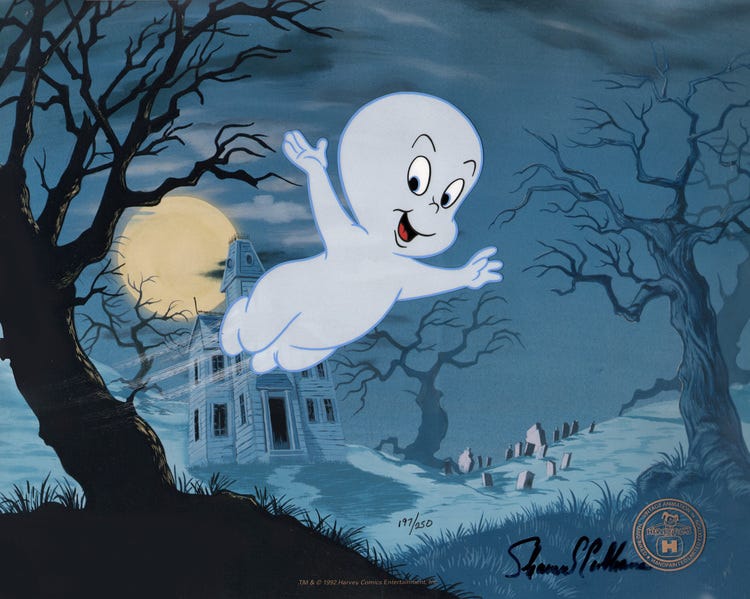Ghost Words
If someone ghosts you, respect the dead and move on.
Saturdays are perfect days for spectral surprises. Surprise—we’re talking about words for ghosts today!
Of all the terrors that haunt dreams and roam darkened streets around Halloween, ghosts rise above the rest of the monster mash, and not just because they can float. Ghosts feature prominently in every culture’s horror stories, which explains why we have so many words for them. How much do you know about different terms for ghosts?
apparition (noun) - a Middle English word for a ghost, ghostly image, or unusual sighting
BREAKDOWN: AP- (to) + PAR- (be visible) + -TION (act or state)
phantasm (noun) - a Latin term for an illusion, apparition, or figment of the imagination (also phantom)
BREAKDOWN: PHAN- (to appear) + -ASM (state)
poltergeist (noun) - a German word basically meaning noisy ghost
revenant (noun) - A French word for one who comes back after an absence or after death; a ghost
BREAKDOWN: RE- (back) + VEN- (to come) + -ANT (one who)
shade (noun) a Middle English word for gloom, dark image, or ghost (also shadow)
specter (noun) - a ghost, phantom, or apparition; abstractly a source of terror or dread (also spectre)
BREAKDOWN: SPECT- (look, observe) + -ER (one who does)
wraith (noun) - a Scottish word for ghost
And for all our Ghostbusters out there, here’s a bonus word:
ectoplasm (noun) - an immaterial or viscous substance that secretes off spirits or accompanies ghostly phenomena; also the outer layer of cytoplasm in cells
BREAKDOWN: ECTO- (outside) + -PLASM (growth or creation)
“A house is never still in darkness to those who listen intently; there is a whispering in distant chambers, an unearthly hand presses the snib of the window, the latch rises. Ghosts were created when the first man awoke in the night.” —James M. Barrie



